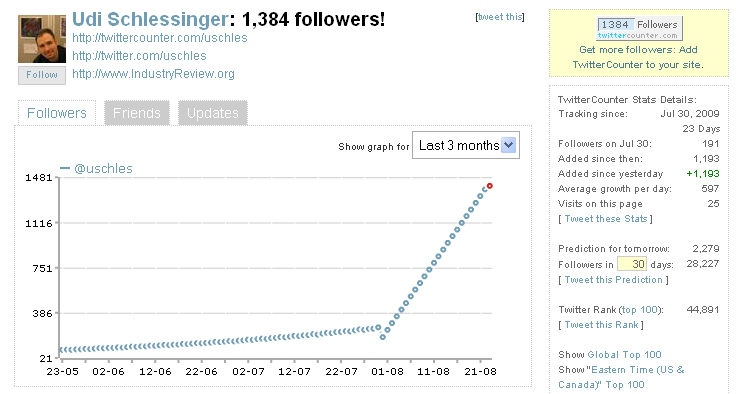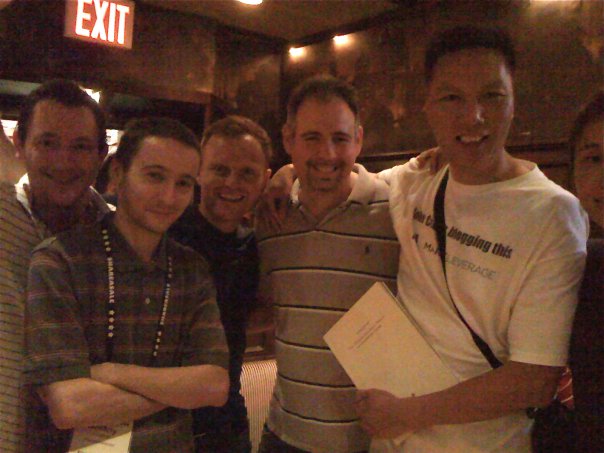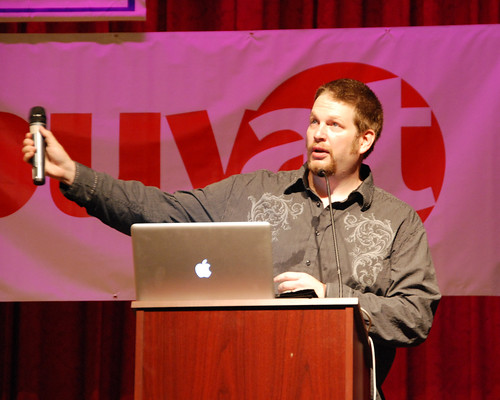
Here’s a common scenario: It took a few months where you kept telling yourself “I’m going to start a blog soon, I promise” and you finally have. You put some effort and created several state of the art posts. But no one visits. You look at the traffic logs, and there are two visitors, one is Google (spidering your website) and the second is you.
This is a common problem for new blogs: no one knows you or your blog, and they don’t have any reason or interest in visiting your carefully crafted blog. How do you get them to give you a chance?
I’ll classify my answer to this issue into two categories: the technical way and the non-technical way. I’ll begin with the non-technical way which will be covered shortly. The second part will be posted tomorrow.
In many ways, the non-technical way can also be called the ‘common sense’ way, though some aspects are quite subtle, particularly if you’re very new to the world of blogging.
- Quality: write good content. As I wrote in an earlier post (which actually does not even reside on my blog but rather in Murray Newlands’ interview of me… I should copy some parts into my own blog!), you should not be blogging if you don’t find this activity at least somewhat enjoyable. If you enjoy the process, then you are more likely to produce quality content. If you produce quality content, you are more likely to attract people who enjoy it. If you attract people – well, that’s the goal, isn’t it?
A necessary condition, in my opinion, is being passionate (as well as knowledgeable) about what you’re writing about. Don’t try to write about something that you don’t like – as it will be apparent in your writing. If you’re using blogging as way to reach a goal and don’t find the subject matter interesting, then there is probably a better way to achieve what you want other than blogging. Although this may seem obvious, some people just blog for the sake of blogging. Perhaps so they could also say “I have a blog”. It’s very easy to identify these blogs. They’re simply boring. Dull as hell. Sometimes you can even sense the suffering that went into producing a specific post.
- Consistency: write consistently. Suppose you wrote three very good posts in the span of a week and have started getting a group of people who show interest in your blog, but then stopped for two weeks. Don’t be surprised if these people figure you’ve abandoned blogging and go away (as this happens more often than not – just visit the random blog on blogspot). Particularly at first, it’s crucial that you maintain consistency. Even if it means posting only once a week.
- Show interest in other blogs. In the past, I’ve participated in blog networks where people visited your blog because the framework was a vast network of blogs and you couldn’t avoid other blogs even if you wanted to. Once you started getting visitors, you felt compelled, sometimes out of curiosity, other times out of politeness, to visit their blogs. It was considered very impolite not to at least express some interest in the blogs of people who used to visit your blog (though there were a few people who never did). These days since most professional blogs are located on their own domains it’s a bit different. Yet when we think about it, it’s not that different. If you consistently visit other blogs, leave interesting and insightful comments with your blog address, you are much more likely to get the blog owner to visit your blog, as well as his own visitors. This is particularly true when using the ‘CommentLuv’ plugin, but I will discuss this tomorrow.
- Differentiate yourself: find the aspect you’re good at, or particularly interested in, and focus on it. Not only it’s very educational to see what other bloggers in your field are writing about, but you also don’t want to write articles such as “introduction to PPC”, “Introduction to Affiliate Marketing”, “Introduction to CPA” when every single blogger in your field (assuming, in this case, is affiliate marketing) has written a similar post.
- Know your audience: some people are targeting a very specific audience they aren’t familiar with. This is a recipe for disaster. For example, it would be very difficult for me to write a blog about makeup, as I literally know nothing about it. Even if I use a woman’s name, even if I try and somehow succeed at emulating a certain writing style (assuming one exists – I genuinely don’t know), I believe it will be very obvious to the readers at some point that (a) I have no idea what I’m talking about and (b) I am not even a woman.
If you do this, slip-ups are bound to occur, and then you’ll lose the faith of your bloggers. Once you lose that, it’s over – they won’t give you a second chance. You’re dishonest and can’t be trusted.
Note that – in case you don’t remember – I am an ex-academic. Often I’d read papers of people who would try to write a professional article about a certain subject, and within 5 minutes I’d spot a slip-up. For example, they’d use the wrong terminology. Or treat a fundamental aspect as a novel discovery of their own. Whenever I spotted something like this I immediately stopped taking anything he or she wrote seriously. If one does his research properly, this can’t happen. My conclusion: it’s better to stick with what you know even if you don’t know certain things, than claim to be an expert on something and be caught. I advise you, the kind reader, not to do that.
On the other hand, it’s important to mention that some fields really don’t require a lot of effort to master. Perhaps makeup is a bad example, but I’m sure if I spent 2 hours reading about dog grooming, I can easily write a blog that will at convey enough expertise to be convincing. I have a website about auto insurance, and when I started, I really didn’t know much about it. However, I’ve done so much research when writing articles than now I’m really somewhat of an expert on the topic. It’s not rocket science, after all. However, not all fields like that, particularly fields that require passion (i.e. makeup) or professional knowledge (i.e. health issues). Keep this in mind.
Of course, you can have a wide range of topics you’re willing to cover (i.e. a very wide audience), and – in my humble opinion – that is fine too. This blog, the Industry Review, is about Affiliate Marketing, Social Media, Technology in general, and all that is related. It covers quite a lot of fields, but at least so far, hasn’t really focused on any of those (i.e. I haven’t written a post about “How to use PPV effectively” until now. I could if I wanted to, and maybe I will, but there’s so many other things I want to write about, at least now I haven’t gotten to this point yet.
In the second part of this post, I will cover the technical aspects of enticing people to visit your blog. Check this blog tomorrow! Please leave comments of things I have forgotten or omitted.














